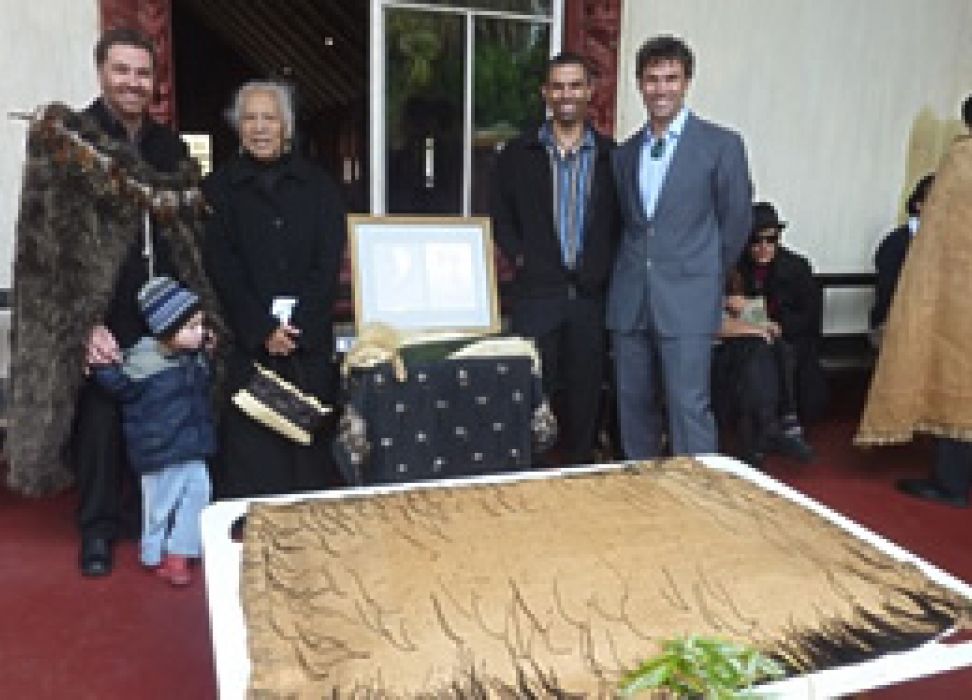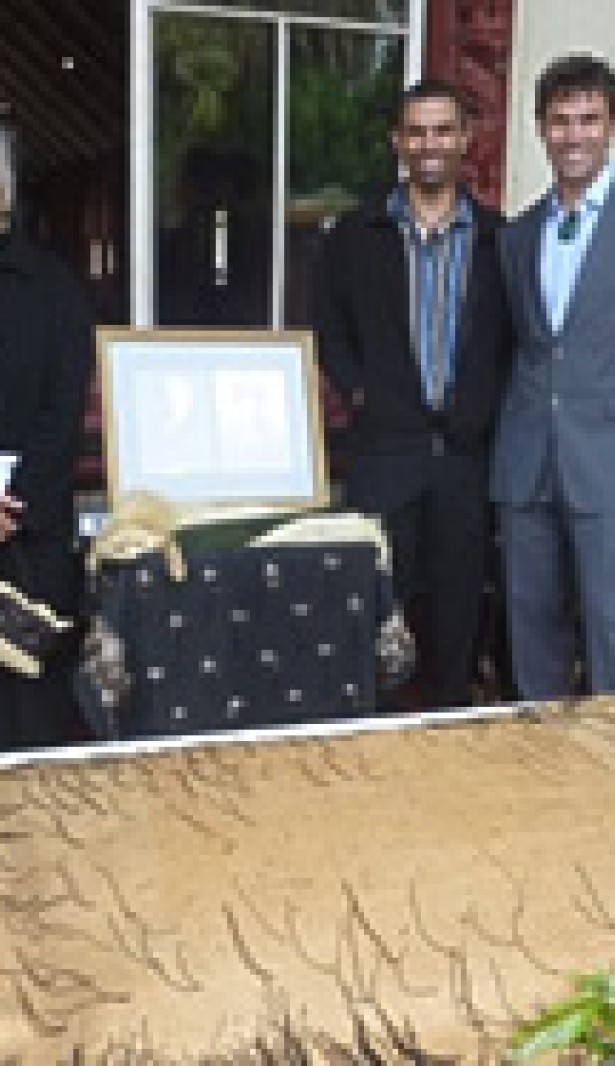Fighting for the right to protect Māori culture
09 August 2012

“For us as an indigenous community it is important to get the right to develop the resources on the land that was historically taken from us,” says Carwyn Jones, a member of the Māori nation Ngāti Kahungunu in New Zealand. “We want to be part of the decision-making process, to have a say in how the natural environment is managed.”
Jones is one out of 23 representatives of indigenous peoples who were selected to participate in the 2012 Indigenous Fellowship Programme that took place in Geneva at the United Nations Human Rights Office.
This annual UN Human Rights indigenous training programme aims at empowering indigenous representatives and their communities by strengthening their knowledge of the UN human rights system and at building their capacity so they are better equipped to promote and protect the rights of their respective indigenous communities at the international level.
From 1997 to 2012, 244 indigenous men and women participated in the Indigenous Fellowship Programme.
Ngāti Kahungunu is the third largest Māori nation in New Zealand and represents 59,946 Māori, according to the 2006 New Zealand Census and Local Government statistics. Its tribal territory is located on the south eastern part of the North Island of New Zealand.
Since 2006, Jones has been a lecturer at Victoria University of Wellington’s Faculty of Law in New Zealand, where he specializes in the Treaty of Waitangi and Māori customary law. He is currently a Ph.D. candidate at the University of Victoria’s Faculty of Law in British Columbia, which is located in Canada.
The 35-year-old lawyer is also a member of the Māori Independent Constitutional Working Group that works to develop a model for a constitution based on tikanga (traditional laws and practices) and the Treaty of Waitangi, which guarantees Māori rights.
The Treaty of Waitangi is New Zealand’s founding document. It is an agreement in Māori and English that was made between the British Crown and about 540 Māori rangatira (chiefs) in 1840. It established a British Governor of New Zealand, guaranteed the Māori ownership of their lands and other properties, and gave the Māori the rights and privileges of British subjects.
In his human rights work, Jones particularly focuses on the protection of indigenous peoples’ rights to traditional and ancestral land and their traditional knowledge. For Jones and his community, the protection of the Māori cultural identity is closely linked to the promotion of the Māori language and the protection of intellectual property.
“Our traditional knowledge rarely has one sole creator and often cannot be traced back to particular creators because of its age,” he explains. “We need permanent protection of our knowledge, but intellectual property laws operate with a time limit, and so they are insufficient in this regard.”
Revitalizing the Māori language is also an issue that is close to Jones’ heart. He has seen progress in early childhood language learning; however, he feels there is still a lot of work to be done.
Jones feels very fortunate that both his sons have had the opportunity to attend one of the Māori language early childhood education centers called kohanga reo. However, “there has recently been a decline in the quality of language learning,” he explains, “which is due to a lack of funding for Māori language teachers. So the language is far from protected.”
He especially believes that engaging young people in his community is a way to ensure that the struggle for Māori rights is kept alive. This motivates him to encourage Māori students in the faculty to take the conversation on indigenous rights outside the law school, and to the wider Māori community.
Jones feels that the Fellowship experience inspired him to encourage Māori law students to submit reports to the human rights treaty bodies and to the Universal Periodic Review of the UN Human Rights Council. “It would be excellent practice for them to keep an eye on deadlines and make sure there is some Māori input in these reports,” he says.
Today is the International Day of the World’s Indigenous Peoples.
9 August 2012

